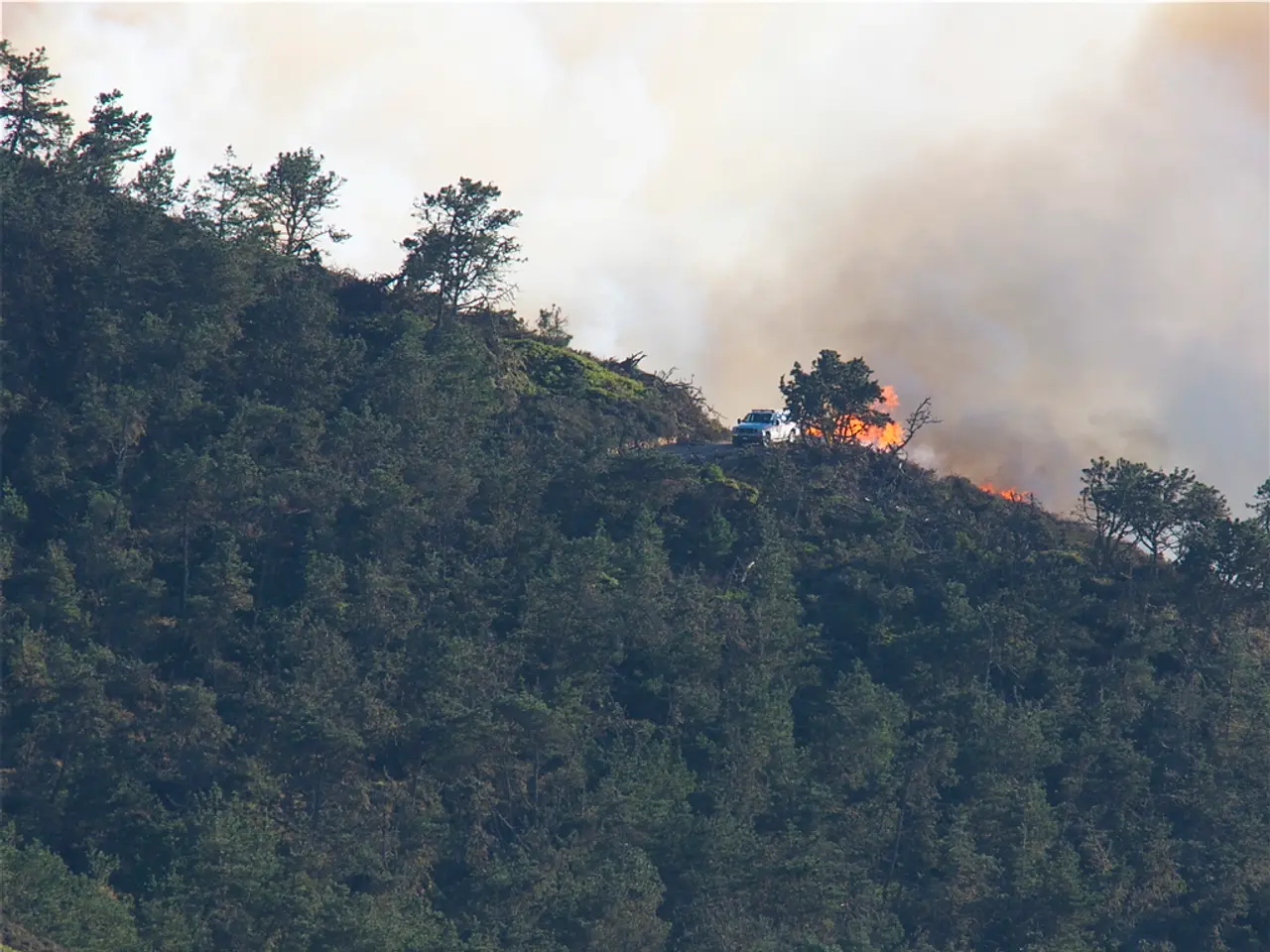Exposure to wildfire smoke is equivalent to smoking about half a pack of cigarettes daily. Here's some advice on safeguarding yourself.
Wildfire smoke from Canada continued to pose a threat on July 27, 2025, prompting air quality alerts in the Northeast U.S. and Upper Midwest, including states like New York, Vermont, Maine, Michigan, and Wisconsin.
As the smoke spread, concerns about the health impacts grew. A growing body of research suggests that smoke exposure is linked to a higher risk of developing dementia, and pregnant people may face higher chances of preterm birth and lower birth weights due to wildfire smoke exposure. Moreover, wildfire smoke can worsen other medical conditions, including cardiovascular-related issues.
To protect farmworkers during dangerous air quality conditions, the Farmworker Smoke and Excessive Heat Protection Act of 2025 has been introduced. This legislation sets safety standards specifically for farmworkers exposed to wildfire smoke and extreme heat.
Key protective steps include the provision of N95 or equivalent respirators, mandatory during hazardous air quality conditions. Employers should also implement cooling measures, such as access to water, shade, and mandated breaks, to reduce heat-related illness risks. Training programs for farmworkers on smoke and heat dangers and the correct use of protective equipment are essential. Enforcement of these standards through occupational safety regulations with penalties for non-compliance is also crucial.
Beyond respiratory protection and heat mitigation, general farm safety during extreme weather includes preparedness and planning. However, specific wildfire mitigation measures for farm labor were not detailed in the available sources.
For those living in areas affected by wildfire smoke, staying indoors with windows tightly shut, limiting physical activity, running an air filter, and wearing an N95 mask can help protect you. It's important to note that no level of exposure to wildfire smoke is completely safe, but limiting the dose and duration of exposure can help reduce the risks.
Children, older adults, pregnant people, and those with preexisting health problems are particularly vulnerable to the harmful effects of wildfire smoke. If you can't leave the area, it's crucial to take these precautions seriously to protect yourself and your loved ones.
For more tips on protecting yourself from poor air quality, a Life Kit guide is available.
[1] Farmworker Smoke and Excessive Heat Protection Act of 2025 [2] Protecting Farmworkers During Wildfire Season [3] Wildfire Mitigation Measures for Infrastructure Protection [4] Health Risks of Wildfire Smoke for Farmworkers [5] General Farm Safety During Extreme Weather
- The Farmworker Smoke and Excessive Heat Protection Act of 2025 introduces legislative safety standards for farmworkers exposed to wildfire smoke and extreme heat.
- One of the key protective steps in the Act is the provision of N95 or equivalent respirators to farmworkers during hazardous air quality conditions.
- For environmental-science enthusiasts, research suggests a link between wildfire smoke exposure and a higher risk of developing dementia.
- In addition to respiratory protection, health-and-wellness recommendations for individuals living in affected areas include staying indoors, limiting physical activity, running an air filter, and wearing an N95 mask.
- Those with ESG-focused investments might want to consider the impact of climate-change related disasters, like wildfires, on the assets they hold.
- For fitness-and-exercise enthusiasts, it's advisable to take extra precautions during wildfire seasons, as wildfire smoke can worsen mental-health conditions and affect overall well-being.
- In order to combat climate-change and reduce the risk of wildfires, promoting proper nutrition and environmental-science education can play a crucial role in fostering sustainable and fire-resistant communities.




